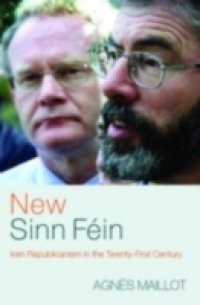As a consequence of Sinn Fein's connection with the IRA, the military side of the republican movement has tended to overshadow the political, both in terms of its internal operation and strategic choices and in terms of the attention that it has attracted from scholars, writers and journalists. However, since the 1998 Good Friday Agreement, Sinn Fein has experienced substantial growth, in terms of electoral results and party support, both in Northern Ireland and in the Republic of Ireland.This book assesses the importance and relevance of Sinn Fein within the changing configurations of Irish politics, studying it as a political party on both sides of the Irish border. It investigates whether Sinn Fein can sustain the progress made over the last decade, retain its identity as the voice of radical republicanism, and ultimately, whether its vision of a united Ireland can prevail.

